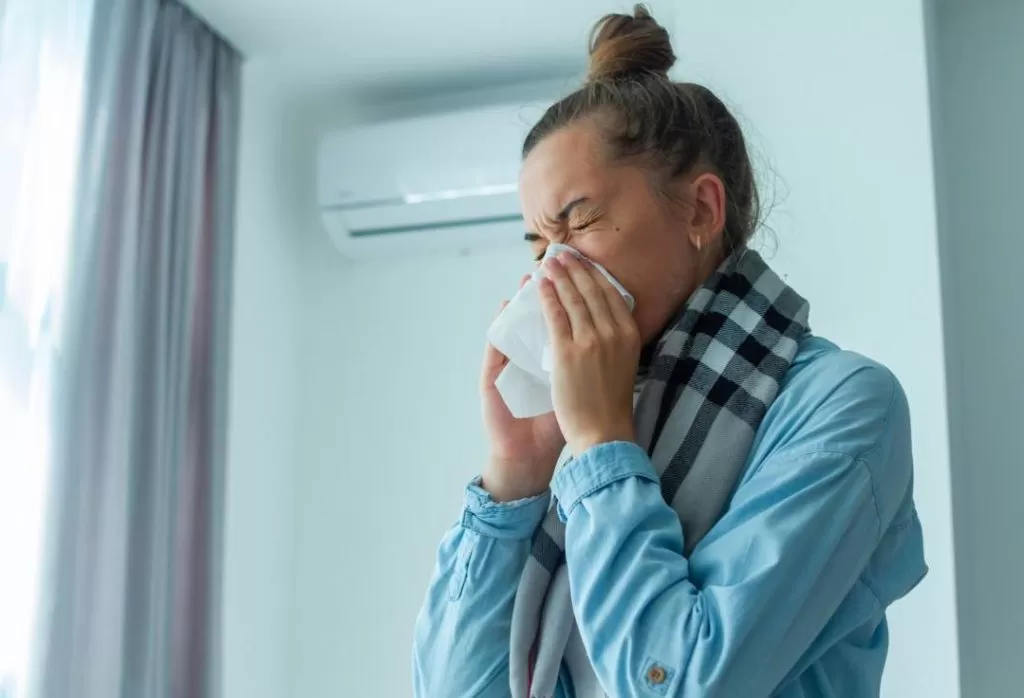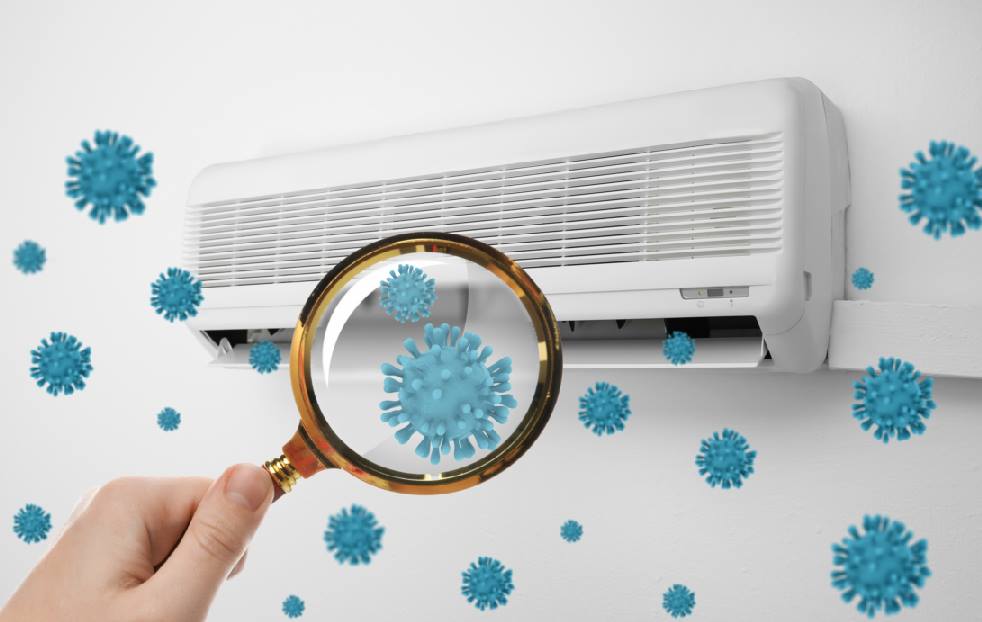
Air conditioning is a lifesaver when it comes to dealing with scorching temperatures. Whether you’re at work, at home, in a shopping center, or in your car, a cold air conditioner brings much-needed relief. However, while it provides temporary respite from the hot and humid weather, it can also pose health risks for people of all ages.
Can You Get Sick From Cold Air Conditioning?
Air conditioning does not directly make you sick, but it can lead to health problems due to improper maintenance. The most common issues related to air conditioning include allergies, respiratory problems, skin irritation, and dryness of the mucous membranes. However, these effects vary depending on factors like sensitivity, system cleanliness, and usage.
While air conditioning is an essential source of relief from hot and humid weather, it’s important to be aware of potential health concerns. If air conditioners are not cleaned regularly, they can cause various health problems. For instance, air contamination can cause respiratory issues. Moreover, using air conditioning at work or home can result in colds, fevers, headaches, and fatigue.
Why Does Air Conditioning Make Me Sick?
Air conditioning can make people feel sick for several reasons. One reason is that it removes moisture from the air, resulting in air dryness. This can irritate the respiratory system and cause symptoms like a dry throat, nasal congestion, coughing, and dry skin.
Another factor is the sudden temperature changes when moving from a hot and humid environment to a cold air-conditioned space or vice versa. This can stress the body’s thermoregulatory system and lead to symptoms such as headaches, dizziness, and fatigue.
The quality of indoor air also plays a role. If air conditioning units are not properly maintained, they can become breeding grounds for mold, bacteria, and allergens. These contaminants can cause respiratory issues, allergic reactions, and flu-like symptoms when circulated into the air.
Additionally, air conditioning systems can recirculate dust, pollen, and other particles that can trigger allergies or asthma symptoms in sensitive individuals. Regular cleaning and maintenance of air conditioning units can help improve indoor air quality and reduce the risk of these health effects.

What Are The Symptoms Of Getting Sick From AC?
1. Respiratory Issues
Getting sick from AC can lead to a range of other respiratory problems. These may include nasal congestion, sinusitis, sore throat, and chest tightness. When individuals with pre-existing respiratory conditions such as asthma or allergies are affected by AC-related illnesses, their symptoms tend to worsen. People with asthma may experience more frequent and severe asthma attacks. Allergy symptoms, such as itchy and watery eyes, runny nose, and skin rashes, may also intensify.
2. Allergic Reactions
Air conditioning systems can potentially spread allergens like dust, pollen, and mold spores. For example, pollen can easily find its way into AC systems through open windows or doors. Once inside, the AC system can distribute the allergen throughout the indoor environment, causing discomfort and allergic reactions for those who are sensitive to it. Therefore, they can experience various allergic reactions, such as a runny nose, watery or itchy eyes, hives, and skin rashes.
3. Headaches And Fatigue
Headaches are a common symptom of air conditioning sickness. These headaches can range in severity and may come with additional symptoms like dizziness, nausea, and sensitivity to light or sound. Furthermore, several factors associated with air conditioning systems can contribute to feelings of fatigue.
4. Sinus Infections And Congestion
Excessive use of air conditioning can make the air inside a building extremely dry, resulting in sinus infections and congestion. This is because the moisture in the sinuses and respiratory tract helps in capturing and eliminating foreign particles like dust, pollen, and bacteria. However, when this moisture is depleted, the lining loses its efficiency, causing sinus blockages and congestion.
5. Eye, Throat, And Skin Irritation
Air conditioners function by cooling the air and extracting moisture from it, resulting in reduced humidity levels in the surrounding area. However, this decrease in humidity can lead to dryness of the eyes, throat, and skin. Additionally, frequent fluctuations in temperature caused by turning the air conditioner on and off or setting it at extremely low temperatures can further contribute to irritation of the eyes, throat, and skin.
How Long Does Air Conditioning Sickness Last?
The length of time someone experiences air conditioning sickness can vary depending on a few things. These include their overall health, how severe their symptoms are, and how long they were exposed to the things that caused their sickness. Usually, symptoms only last a few hours or days after leaving the place that made them sick. But in some cases, the sickness can stick around for weeks or even months if the person keeps being exposed to the things that caused it.
To get better from air conditioning sickness, it’s important to avoid or reduce exposure to the things that caused it. This might mean making sure the air inside is clean and well-ventilated, staying away from chemicals that can make you sick, and keeping the place clean. It’s also a good idea to talk to a doctor or nurse about what treatment options might work best for you.
In some cases, over-the-counter medications such as antihistamines or decongestants may be recommended to alleviate symptoms such as nasal congestion, headaches, or coughing. However, it is important to consult with a healthcare professional before taking any medication, as they can provide guidance on the appropriate dosage and potential side effects.
However, medical intervention may be necessary in more severe cases where symptoms persist or worsen. This can include prescription medications to manage symptoms or treat underlying conditions, such as asthma or allergies. In extreme cases, hospitalization may be required for further evaluation and treatment.

Final Thoughts
Regularly maintaining your air conditioner and replacing the filter can keep you and your loved ones healthy. By keeping your air conditioner in good condition, you can effectively remove pollutants that can worsen existing symptoms or cause new ones. This is especially important if someone in your household or workplace has respiratory issues, as it helps maintain good air quality.







